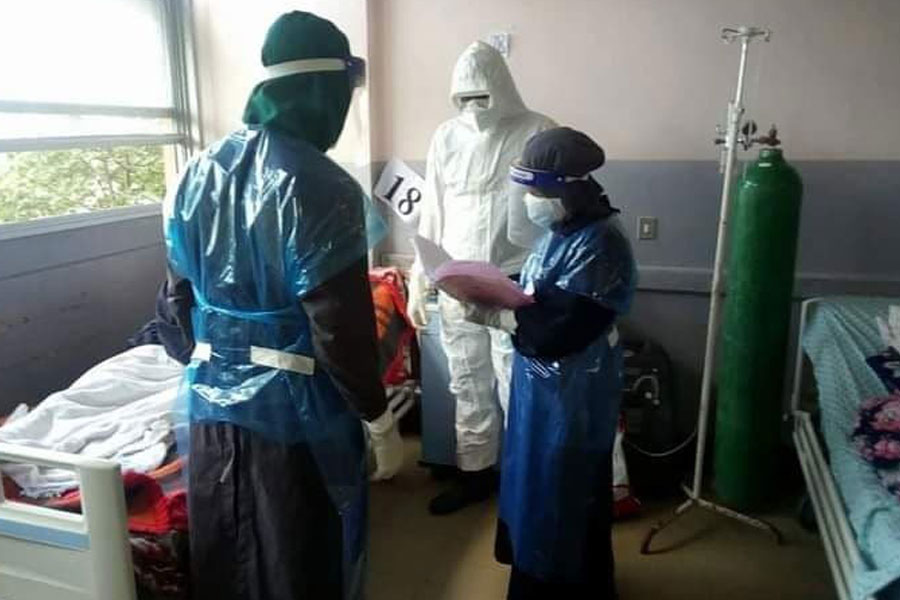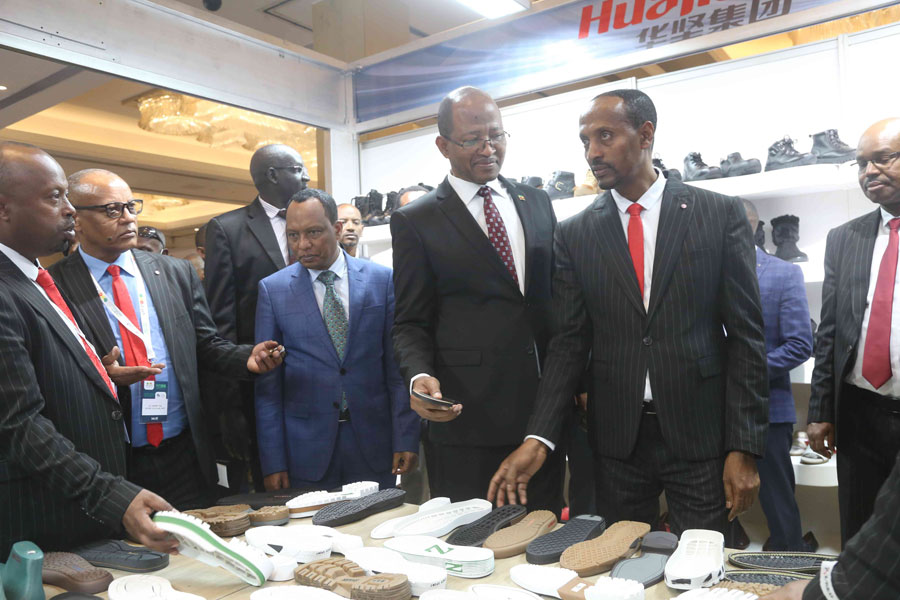
Featured | Sep 11,2020
Jun 22 , 2024
By Kidist Yidnekachew
While riding the bus the other day, I noticed a young woman deeply engrossed in a phone conversation. She was recounting the story of finally getting her driver's license, vividly describing the difficult exams and the "token of appreciation" of 1,000 Br allegedly given to the instructor for "tea." She did not consider it as a bribe but I could not help but disagree. Her behaviour depicts the shadowy system of bribery that permeates driving tests, creating a dangerous situation on the roads.
Her instructor had thoroughly explained the exam, but passing was not guaranteed. Failing meant paying again to retake the test but the young woman aced it, despite uncertainities. A similar situation with a friend exposed the system's true darkness with the assigned instructor demanding a hefty 5,000 Br bribe upfront, even before she completed the practical requirements.
This blatant extortion attempt, sadly not uncommon, reveals the exploitation within the licensing process. The proper route involves receiving adequate training and passing the driving test fairly. But this system of bribery thrives for several reasons.
Low salaries for examiners and weak enforcement mechanisms create a breeding ground for corruption. The subjective nature of the test allows some examiners to exploit this by failing deserving candidates and offering a "second chance" for a price. Students may also be driven to bribery by fear of failure, time constraints, or unclear testing procedures.
The consequences of this bribery cycle are severe. Unqualified drivers pose a safety hazard, increasing accidents, injuries, and fatalities. Recent statistics from transport authorities show a surge in traffic accidents, with penalties doubling to over 1.1 billion Br in the past year. Transport authorities placed blame on driving schools and vehicle inspection centres during a presentation at Parliament.
Beyond safety concerns, a corrupt system erodes public trust, discourages honest applicants, and undermines the efficiency of the entire licensing process.
To dismantle this system, a multi-pronged approach is necessary. Increasing examiner salaries can eliminate the financial incentive for bribery. Stricter penalties for both examiners and students involved can act as a strong deterrent. Implementing standardised testing procedures with clear, objective criteria will reduce examiner discretion and opportunities for manipulation.
With nearly 100,000 cars joining the roads annually, around 600 driving schools produce thousands of new drivers yearly for tests prepared by transport authorities. Implementing standardised national guidelines for all driving schools would ensure consistent training quality while a digital point penalty system would enable stricter driver monitoring.
Driving schools also play a crucial role. Rigorous teaching on the behavioural aspects is important. Nearly two million drivers were penalised for over nine million traffic violations this year while a crackdown on driving schools led to the cancellation of permits for 10 driving schools across the country. By providing quality instruction and ensuring students are proficient before taking the exam, schools should empower students to confidently take the test without resorting to bribes.
Ultimately, a cultural shift is needed. Cultivating respect for traffic laws and promoting responsible driving practices is paramount. We need a system that prioritises safety and ensures a driver's license signifies competence, not a product of a corrupt system.
PUBLISHED ON
Jun 22,2024 [ VOL
25 , NO
1260]


Featured | Sep 11,2020

In-Picture | Apr 27,2025

Agenda | Oct 31,2020

Agenda | Dec 16,2023

Sunday with Eden | Mar 09,2024

Agenda | Aug 01,2020

View From Arada | Mar 13,2021

Viewpoints | Apr 13,2019

Fortune News | Dec 01,2024

Editorial | Jun 04,2022

Photo Gallery | 180307 Views | May 06,2019

Photo Gallery | 170504 Views | Apr 26,2019

Photo Gallery | 161535 Views | Oct 06,2021

My Opinion | 137271 Views | Aug 14,2021

Dec 22 , 2024 . By TIZITA SHEWAFERAW
Charged with transforming colossal state-owned enterprises into modern and competitiv...

Aug 18 , 2024 . By AKSAH ITALO
Although predictable Yonas Zerihun's job in the ride-hailing service is not immune to...

Jul 28 , 2024 . By TIZITA SHEWAFERAW
Unhabitual, perhaps too many, Samuel Gebreyohannes, 38, used to occasionally enjoy a couple of beers at breakfast. However, he recently swit...

Jul 13 , 2024 . By AKSAH ITALO
Investors who rely on tractors, trucks, and field vehicles for commuting, transporting commodities, and f...

Nov 1 , 2025
The National Bank of Ethiopia (NBE) issued a statement two weeks ago that appeared to...

Oct 25 , 2025
The regulatory machinery is on overdrive. In only two years, no fewer than 35 new pro...

Oct 18 , 2025
The political establishment, notably the ruling party and its top brass, has become p...

Oct 11 , 2025
Ladislas Farago, a roving Associated Press (AP) correspondent, arrived in Ethiopia in...

Nov 2 , 2025
The National Bank of Ethiopia (NBE) has scrapped the credit-growth ceiling that had s...

Nov 2 , 2025 . By SURAFEL MULUGETA
The burgeoning data mining industry is struggling with mounting concerns following th...

Nov 2 , 2025 . By YITBAREK GETACHEW
Berhan Bank has chosen a different route in its pursuit of a new headquarters, opting for a transitional building instea...

Nov 2 , 2025 . By BEZAWIT HULUAGER
Nib International Bank S.C. has found itself at the epicentre of a severe governance...